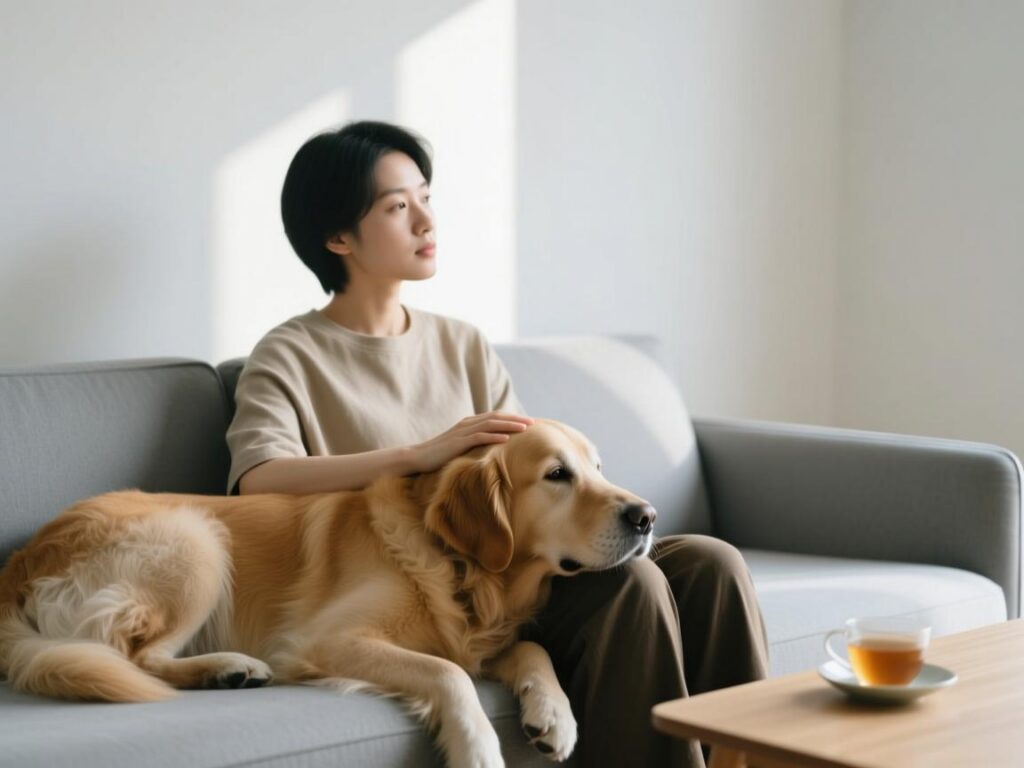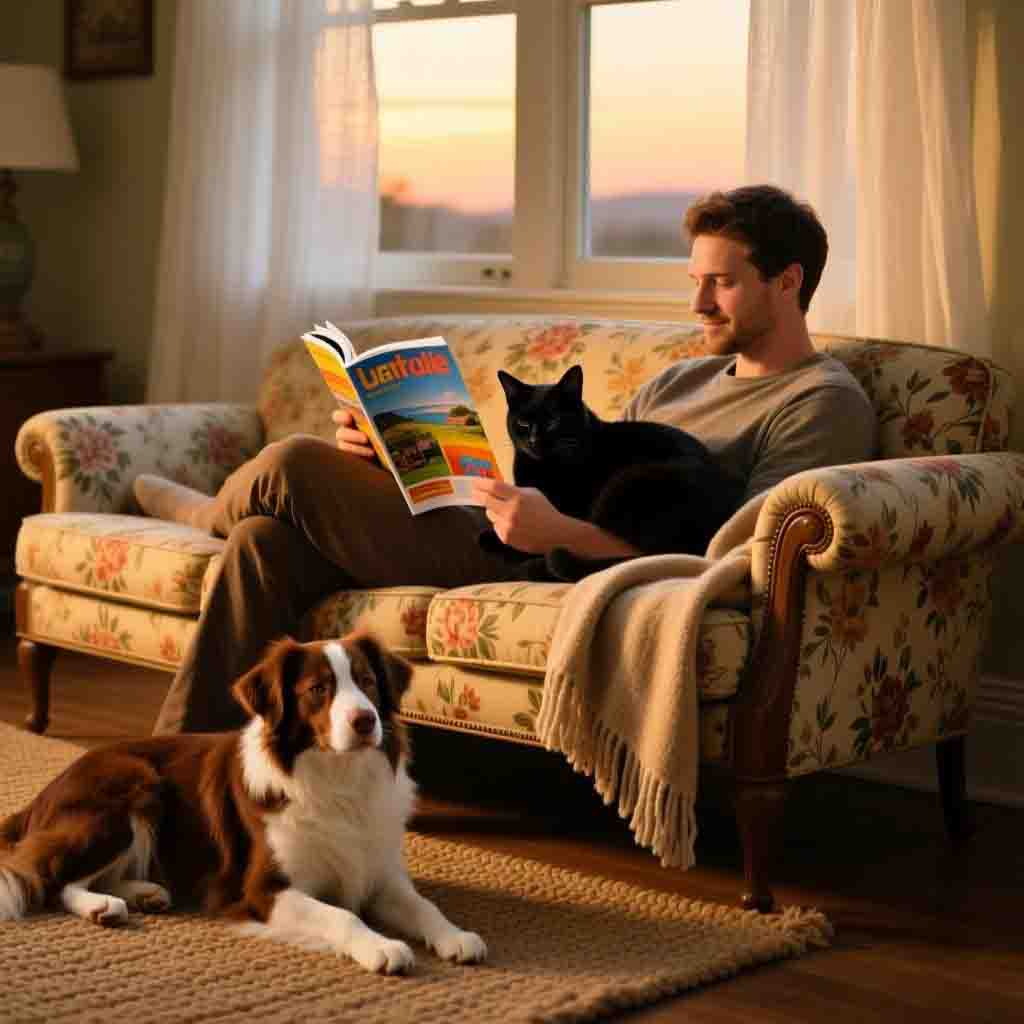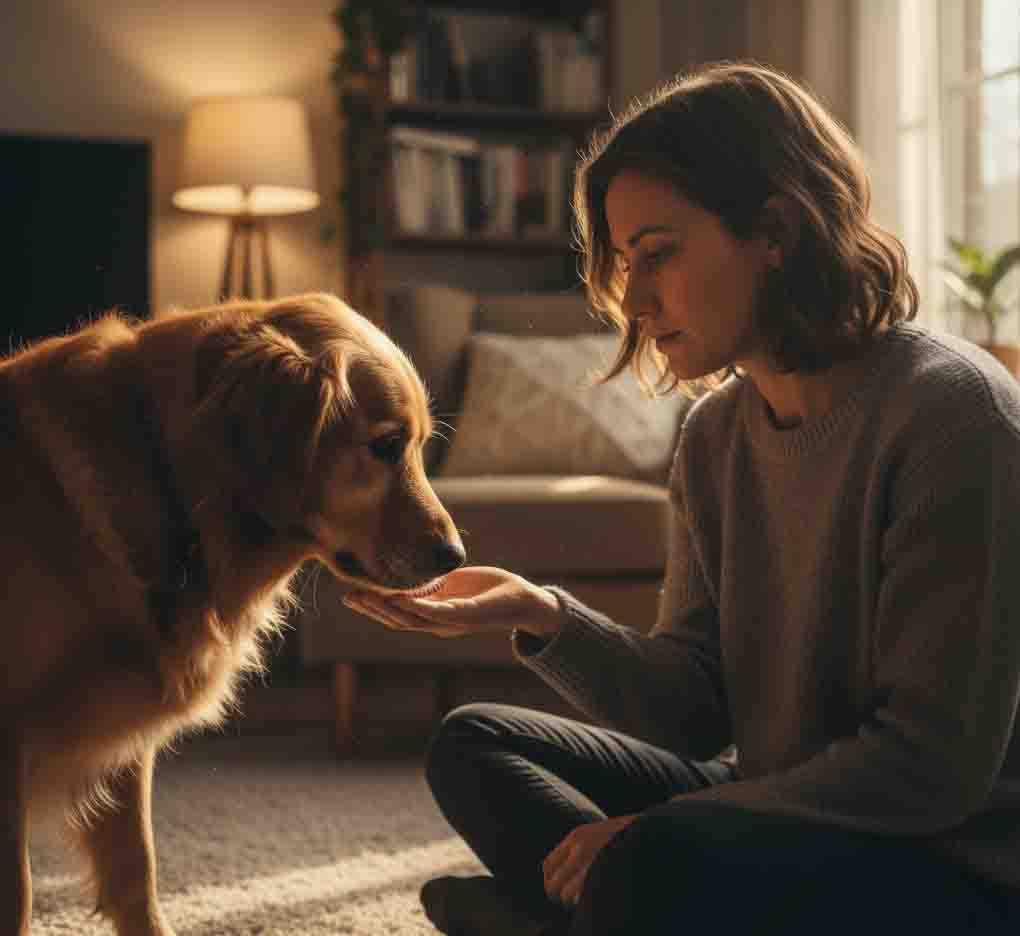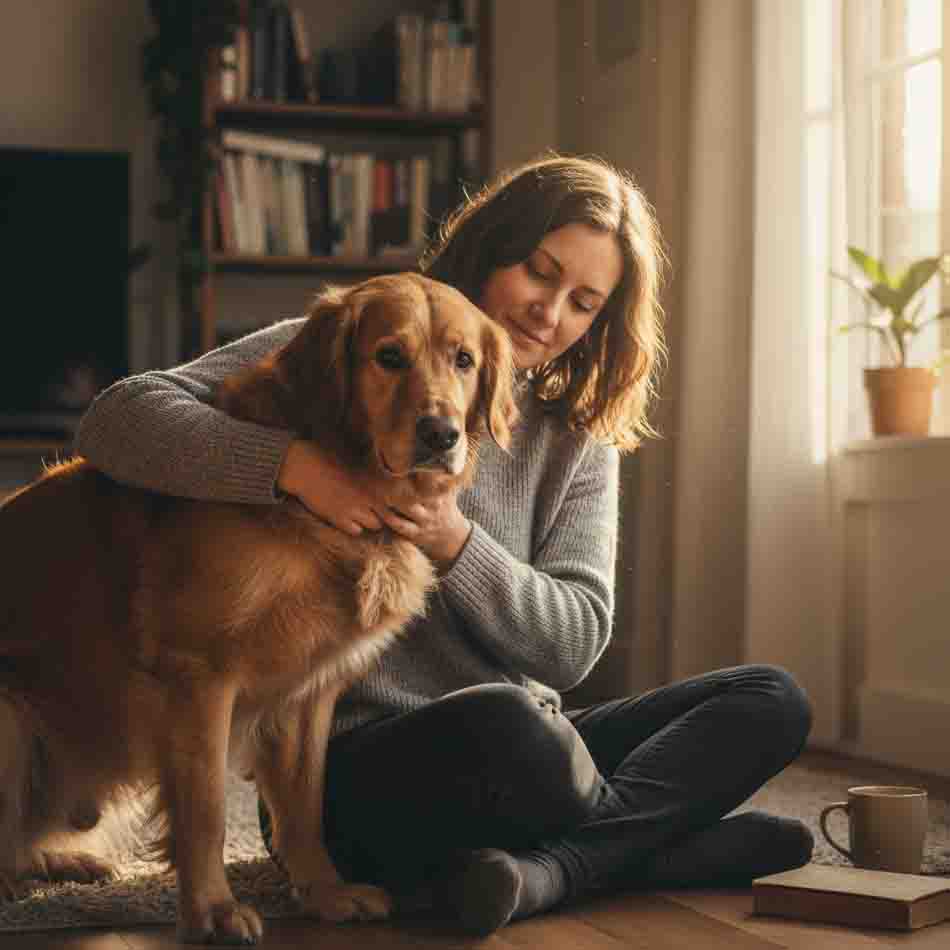You know the scene. You fumble with your keys, push the door open, and are met with a hollow silence. The couch is exactly as you left it. For a split second, the emptiness of the home echoes a feeling inside. Then, you hear it. The frantic scratching of claws on the floor, a joyful bark, or the soft thump of a cat landing from her perch. A wet nose presses into your hand, or a furry head butts against your leg. The silence is shattered, and so is that hollow feeling.
It’s in these simple, daily homecomings that we experience the purest form of the human-animal bond. It’s not just about cohabitation; it’s about a connection with a living being who notices your absence and is genuinely, unreservedly thrilled by your return. It’s a welcome no human could ever choreograph.
The Unspoken Language of a Wet Nose
We talk to our pets, even though they don’t understand the words. But the real conversation happens without a single syllable. My dog, Milo, doesn’t need me to say, “I had a terrible day.” He reads my slumped shoulders, rests his chin on my knee, and lets out a soft sigh. That’s the entire therapy session.
This is a language built on pure, unfiltered presence.
-
The Comfort of a Purr: When anxiety runs high, my cat, Luna, often hops onto my lap. Her purr isn’t just a sound; it’s a vibration that seems to physically slow my racing heart. It’s a rhythm that says, “Right here, right now, we are just sitting. That’s all.” It’s a masterclass in mindfulness from a creature who lives entirely in the present moment.
-
The Demand for Play: Sometimes, after hours at my desk, Milo will drop his slobber-covered ball directly onto my keyboard. It’s annoying, and it’s brilliant. He’s not just asking to play; he’s pulling me out of my digital haze and back into the tangible world of fetch and fresh air. He forces me to take a break I didn’t know I needed.
When the Silence Returns: Navigating the Tough Times
This profound bond also comes with a terrifying vulnerability. The thought of that welcome not being there one day is a shadow in the back of every pet owner’s mind. I remember when my childhood dog, Sam, grew old. The hardest part was watching him slow down. The joyful bark became a slow, pained wag.
The depth of our connection is most painfully clear at the end. The grief of losing a pet is a specific, isolating pain—one that isn’t always acknowledged by the outside world. But here, we understand. We know it’s not “just a dog” or “just a cat.” It’s the loss of a constant, non-judgmental companion. It’s the loss of the one who always noticed you were home.

3 Practical Ways to Deepen Your Bond with Your Pet
Strengthening this relationship is rewarding for both you and your animal companion. Here are three science-backed ways to enhance your connection.
-
Create a Dedicated Homecoming Ritual: Turn re-entry into a positive, predictable event. Spend the first few minutes offering high-value treats, enthusiastic petting, or an excited tone of voice. This reinforces their sense of security and makes your return the highlight of their day.
-
Practice Mindful Observation: Each day, put away your phone and simply observe your pet for five minutes. Notice their sleeping positions, grooming habits, and quirky mannerisms. This not only helps you understand their needs but also grounds you in the present moment, reducing your own stress.
-
Introduce Interactive Play and Puzzle Toys: Mental stimulation is as crucial as physical exercise. Use food-dispensing toys, hide treats for them to find, or engage in training sessions with positive reinforcement. This engages their natural problem-solving instincts and builds a partnership based on mutual fun.
Frequently Asked Questions
Q: My pet doesn’t seem to comfort me when I’m sad. Does that mean our bond isn’t strong?
A: Not at all. Pets express empathy in different ways. Some may cuddle, while others may simply sit in the same room or give you space. Their presence alone is often their way of offering support. Each animal has a unique personality.
Q: How can I cope with the anxiety of potentially losing my pet?
A: This anxiety is a testament to your deep love. The best antidote is to actively practice being in the present with them. Take photos and videos, create positive memories through adventures and cuddles, and focus on the quality of life you are providing for them right now.
Q: Is there scientific proof that pets are good for our mental health?
A: Yes. Numerous studies have shown that interacting with pets can lower cortisol (a stress hormone), reduce blood pressure, and increase oxytocin (the “bonding” hormone). Their unconditional companionship is a powerful buffer against stress and loneliness.
The magic of this bond is that it’s unique for every person, yet universally understood.





